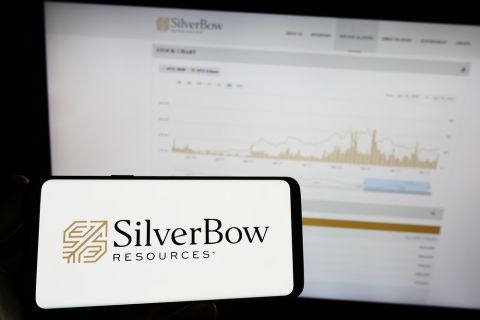Major oil companies' asset-sale activity-like BP's planned $1.3-billion sale of North Sea and Gulf of Mexico assets to Apache Corp.-is poised to jump, according to an analysis by U.K.-based oil-industry research firm Wood Mackenzie. The majors' bigger-is-better focus on production volume, rather than value, has dampened sale activity in the recent past. A switch to focus on value is under way, however, and that, along with lower oil prices, will reignite the sales market, Wood Mackenzie reports. (For more on the BP-Apache deal, see "Company Briefs" in this issue.) The firm's advice to prospective buyers? "Be prepared...Even if the impending action won't occur immediately, now is the time to get ready...There will be first-mover advantage whichever side of the equation the company sits." Rather than waiting for the packages to emerge on the market, analyze the potential sellers' portfolios. "The question here is what should each seller be thinking and which countries and asset packages might be available for sale on an exclusive basis. In particular, purchasers should devise a strategy to approach a potential seller proactively." The firm's analysts reviewed the upstream assets of six major oil companies: BP, ExxonMobil, Shell, ChevronTexaco, Eni and TotalFinaElf. They calculate that 90% of the companies' upstream assets' value is in 14 countries; the remaining 10% are in 18 other countries. "While some of these 'tail' areas may contain growth opportunities which have the potential to grow into future core areas, we believe that in many cases these represent areas which may never rank as core for these companies," the firm reports. Sellers will be looking to exit countries where they lack scale or where their existing operations have no potential to become core to the company. They will also sell assets that are in core countries but are peripheral. "If the six companies included in the analysis dispose of, or swap, 5% by value of their current asset portfolios, the total value of properties to be traded would amount to some $15 billion." Wood Mackenzie expects the buyers will be: • National oil companies, such as Petronas, Petrochina and CNOOC, which are interested in acquiring assets outside their home countries. • Super-independents and independents. "Although the focus for a number of U.S. companies has been a return to the U.S. itself, the acquisition activities of companies such as Talisman, PetroCanada and the smaller independents have indicated a healthy appetite for the right opportunities." • Start-up independents. In the last U.K. licensing round, six new entrants acquired offshore acreage. "Interestingly, while the markets-particularly in the U.K.-continue to be challenging as a source of funds for these companies, there seems to be a ready alternative with venture capital being provided to these fledgling companies." • Russian companies, such as Yukos and TNK, although their purchases have been mostly domestic while wary of overpaying nondomestically during these higher-than-historical oil prices. -A&D Watch
Recommended Reading
Kimmeridge Fast Forwards on SilverBow with Takeover Bid
2024-03-13 - Investment firm Kimmeridge Energy Management, which first asked for additional SilverBow Resources board seats, has followed up with a buyout offer. A deal would make a nearly 1 Bcfe/d Eagle Ford pureplay.
Laredo Oil Subsidiary, Erehwon Enter Into Drilling Agreement with Texakoma
2024-03-14 - The agreement with Lustre Oil and Erehwon Oil & Gas would allow Texakoma to participate in the development of 7,375 net acres of mineral rights in Valley County, Montana.
SLB’s ChampionX Acquisition Key to Production Recovery Market
2024-04-19 - During a quarterly earnings call, SLB CEO Olivier Le Peuch highlighted the production recovery market as a key part of the company’s growth strategy.
NOV's AI, Edge Offerings Find Traction—Despite Crowded Field
2024-02-02 - NOV’s CEO Clay Williams is bullish on the company’s digital future, highlighting value-driven adoption of tech by customers.
From Restructuring to Reinvention, Weatherford Upbeat on Upcycle
2024-02-11 - Weatherford CEO Girish Saligram charts course for growth as the company looks to enter the third year of what appears to be a long upcycle.





